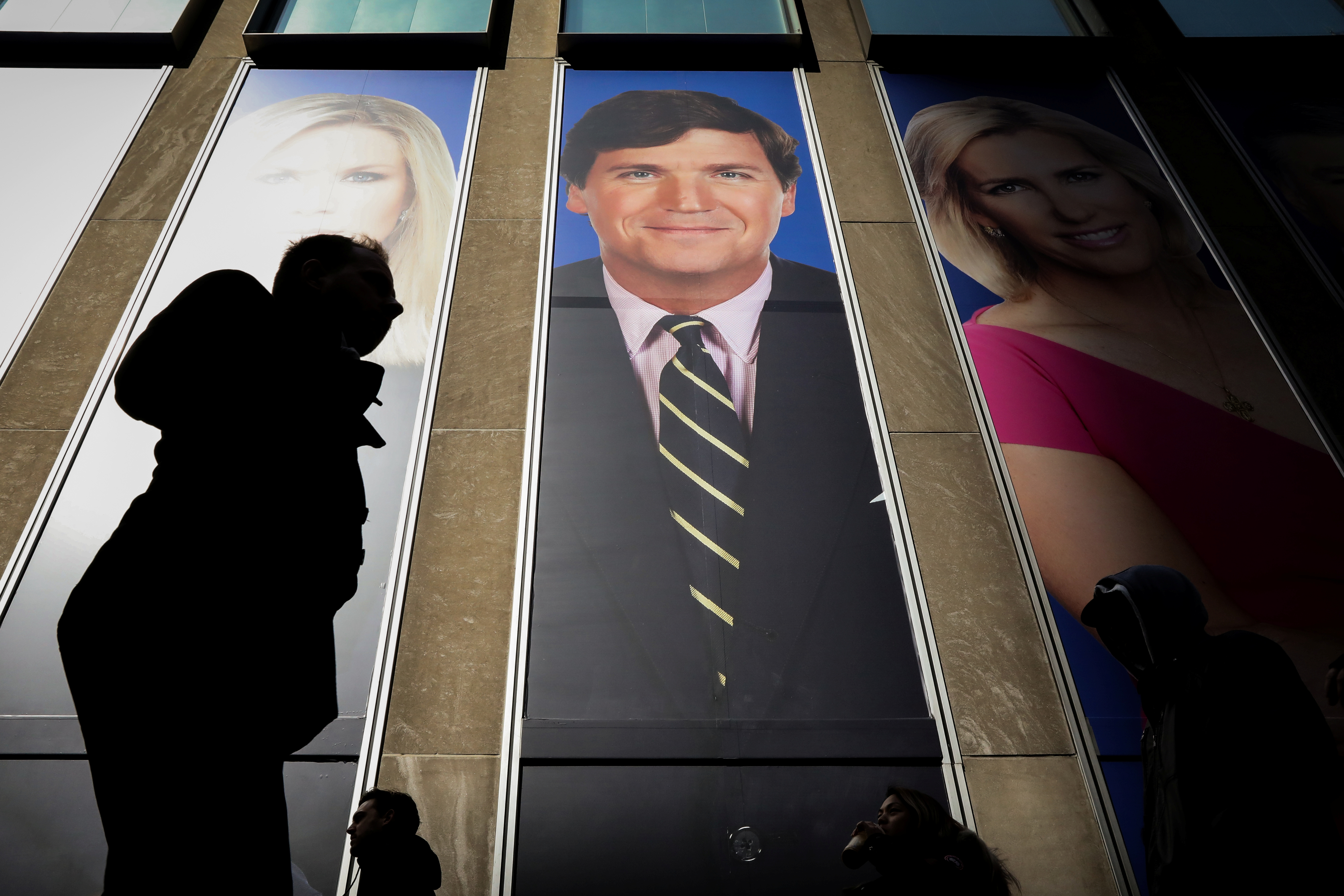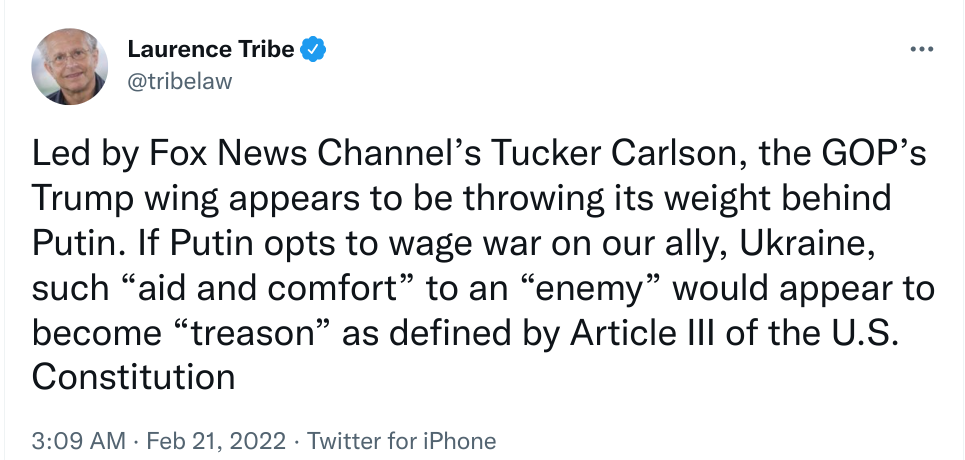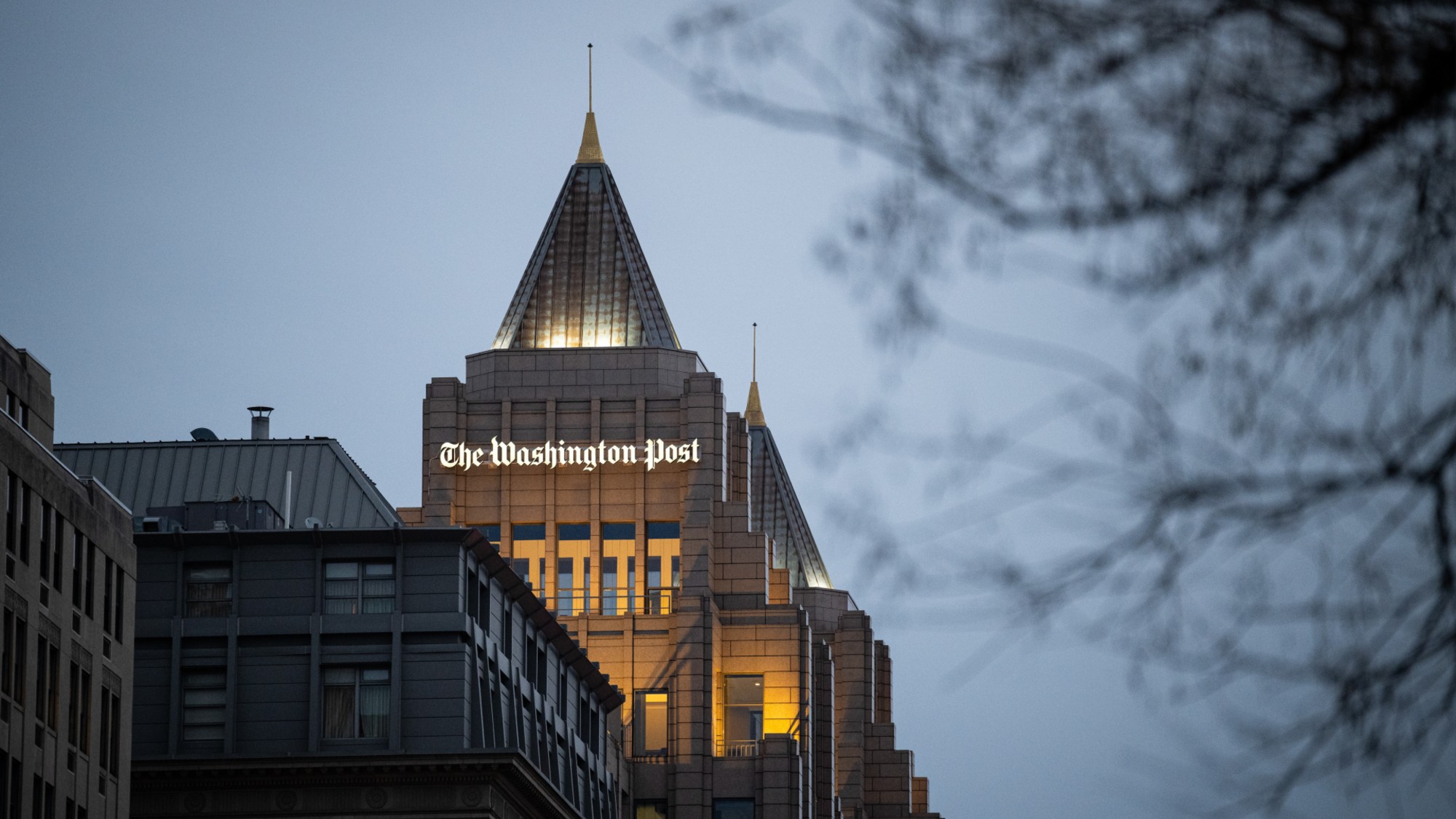War in Europe shouldn't be an excuse to trample free speech in the U.S.


A free daily email with the biggest news stories of the day – and the best features from TheWeek.com
You are now subscribed
Your newsletter sign-up was successful
Wars have never been very good for free expression in America. That might be true even when America isn't fighting the war.
On Monday morning, with Russia apparently on the brink of invading Ukraine, Harvard Law professor Laurence Tribe tweeted that it might be time for American officials to start up treason prosecutions.

An uproar ensued, and Tribe deleted his tweet. Still, both because of his prominence and the recent tendency toward red-baiting by U.S. officials, it's worth considering why his proposal was so awful.
The Week
Escape your echo chamber. Get the facts behind the news, plus analysis from multiple perspectives.

Sign up for The Week's Free Newsletters
From our morning news briefing to a weekly Good News Newsletter, get the best of The Week delivered directly to your inbox.
From our morning news briefing to a weekly Good News Newsletter, get the best of The Week delivered directly to your inbox.
As a factual matter, it was incorrect. Even if the United States gives a lot of weaponry and support to Ukraine, that country is not our ally — we have no treaty or other formal agreement to come to their defense in case of attack. Indeed, one of the hot debates during the last few months has been about whether the United States and other NATO countries will ever allow Ukraine to join the alliance and become an ally in a real, legal sense. Regardless of which side of that argument you take, it's a crucial distinction you would expect an Ivy League law professor to understand and acknowledge.
But Tribe's proposal was also terrible because the United States has a longtime habit of elbowing aside First Amendment rights during wartime. Those of us of a certain age remember when Bill Maher lost his job at ABC several months after 9/11, shortly after a White House spokesman warned that "all Americans … need to watch what they say, watch what they do." (The spokesman later protested that he was misunderstood, but that's not how his remarks were understood in the moment.) During World War I, Eugene Debs — who had been a Socialist candidate for president — was imprisoned after declaring "I will never go to war for a capitalist government." Similarly, Abraham Lincoln's administration had a Democratic congressman arrested for giving an anti-war speech during the Civil War. This country has a long history of ignoring its guaranteed rights during times of conflict. Those aren't our best moments.
If Tribe's tweet is bad on the merits, it's also terrible politics. Conservatives have convinced themselves and their voters that Democrats are the totalitarian, liberty-hating party. Most of the time that's nonsense — but when a prominent liberal like Tribe makes the case that Fox News personalities should be arrested, it gets a lot easier to make the case. Tucker Carlson's not leaving the air anytime soon, but he has another bullet in his rhetorical arsenal to use against liberals. Not great.
While I don't like Carlson's xenophobic reasoning, I agree it's a bad idea for the United States to go to war in Europe. (The same is true of most Americans — another reason Tribe's tweet fails the political smell test.) But even if I disagreed, I still think he should get the chance to make a case. Questions of war and peace are among the most critical a government can make. It's in such moments that America's commitment to free expression is needed most.
A free daily email with the biggest news stories of the day – and the best features from TheWeek.com
Joel Mathis is a writer with 30 years of newspaper and online journalism experience. His work also regularly appears in National Geographic and The Kansas City Star. His awards include best online commentary at the Online News Association and (twice) at the City and Regional Magazine Association.
-
 How the FCC’s ‘equal time’ rule works
How the FCC’s ‘equal time’ rule worksIn the Spotlight The law is at the heart of the Colbert-CBS conflict
-
 What is the endgame in the DHS shutdown?
What is the endgame in the DHS shutdown?Today’s Big Question Democrats want to rein in ICE’s immigration crackdown
-
 ‘Poor time management isn’t just an inconvenience’
‘Poor time management isn’t just an inconvenience’Instant Opinion Opinion, comment and editorials of the day
-
 The UK expands its Hong Kong visa scheme
The UK expands its Hong Kong visa schemeThe Explainer Around 26,000 additional arrivals expected in the UK as government widens eligibility in response to crackdown on rights in former colony
-
 Big-time money squabbles: the conflict over California’s proposed billionaire tax
Big-time money squabbles: the conflict over California’s proposed billionaire taxTalking Points Californians worth more than $1.1 billion would pay a one-time 5% tax
-
 Did Alex Pretti’s killing open a GOP rift on guns?
Did Alex Pretti’s killing open a GOP rift on guns?Talking Points Second Amendment groups push back on the White House narrative
-
 Washington grapples with ICE’s growing footprint — and future
Washington grapples with ICE’s growing footprint — and futureTALKING POINTS The deadly provocations of federal officers in Minnesota have put ICE back in the national spotlight
-
 Trump’s Greenland ambitions push NATO to the edge
Trump’s Greenland ambitions push NATO to the edgeTalking Points The military alliance is facing its worst-ever crisis
-
 ‘It may portend something more ominous’
‘It may portend something more ominous’Instant Opinion Opinion, comment and editorials of the day
-
 Why is Trump threatening defense firms?
Why is Trump threatening defense firms?Talking Points CEO pay and stock buybacks will be restricted
-
 The billionaires’ wealth tax: a catastrophe for California?
The billionaires’ wealth tax: a catastrophe for California?Talking Point Peter Thiel and Larry Page preparing to change state residency
